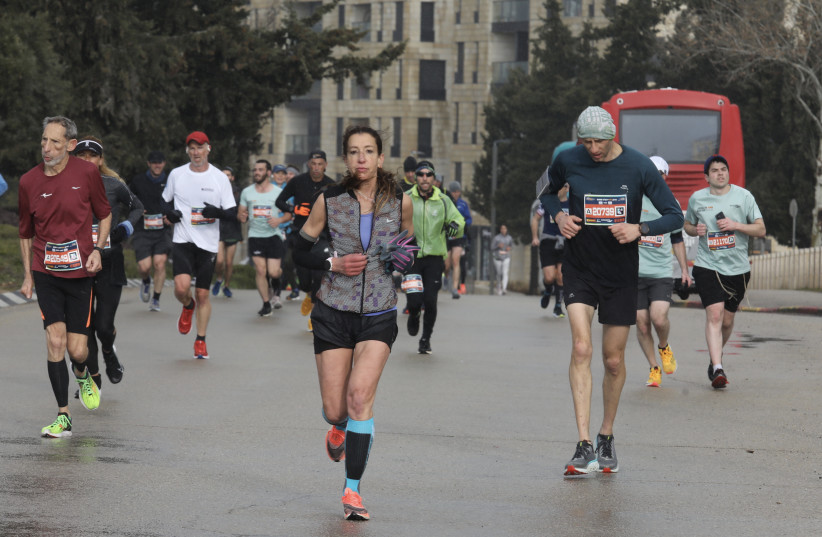Whether it's a distant memory from high school gym class or a recent run, everyone all experienced — at least once — a hard time breathing during running. In these situations, ironically, many people will start to gasp and breathe faster, which can lead them to hyperventilation.
This is usually not dangerous and will pass when you stop running, or, alternatively, the more you run and improve your fitness. Yet there are cases where shortness of breath can signal that something isn’t going right in your body.
An article published in the abstract Breathe shows the mechanism underlying this experience of shortness of breath. Strenuous exercise, like running, requires more oxygen and essential substances to flow to the muscles and other body systems which causes the respiratory system to work vigorously. This is due to the increased need to provide more oxygen to the body and eliminate carbon dioxide.
Shortness of breath is a factor that indicates a low level of physical fitness, a body can’t handle the intensity of the workout. On average, at rest, humans breathe about 15 times per minute and rise to a volume of between 40 and 60 breaths per minute while running.
When it is difficult to breathe, many people will try to get more air into their lungs, although, more importantly, the expulsion of air is usually not performed properly, especially for those with less athletic ability.

This is what happens even in an anxiety attack where we feel like we have no air, so try to put more of it in, instead of just letting go, relaxing and exhaling more air more slowly.
When is shortness of breath a problem?
In some cases, shortness of breath can indicate a heart problem. To understand if it is a significant problem, it is important to notice other symptoms that might appear, such as dizziness, chest pain, increased sweating, or anything else that’s not "normal" for you during and after a workout.
It is important to note that these symptoms can also indicate anxiety, especially if they appear not during exercise. It is important to pay attention to symptoms seek professional help.
In general, shortness of breath when running will decrease as one becomes more fit.
How to <a href="https://www.jpost.com/israel-news/running-marathons-in-israel-is-different-than-anywhere-else-heres-why-684689">run better</a>
There are several ways to reduce it and improve workout performance. The American Lung Association published an article reviewing proven ways to do this.
Be sure to warm-up
Warming up before a run sometimes feels like a waste of time, but studies have shown that this is the most effective way to ensure that the body will withstand the effort that awaits it. A warm-up of between 6 and 10 minutes, which includes both stretching and walking or jogging, will help blood flow more efficiently to the muscles and prepare them for the prolonged run. The warm-up will also help prevent injuries or strained muscles later on.
Breathe in from the nose
This advice is especially difficult for some people while running, but breathing from the nose will significantly reduce the risk of shortness of breath. This is because, unlike air expelled from the mouth, the air in the nose undergoes additional filtration that helps make it moist and pliant.
Schedule your runs
Running in heat, haze and/or severe air pollution increases your chances of suffering from shortness of breath. If you have various allergies, exercise in an environment that won’t provoke them and make it difficult for you.
Get in the rhythm
When we’re short of breath, or trying to get more air into the lungs, we do more harm than good. Instead, get used to breathing at a steady pace. You can synchronize your breathing with the steps and there are different ways to help you do this. Find one that works for you.
And if you really have trouble breathing suddenly, stop for a moment, take a deep breath for a few seconds and exhale for a longer time. This helps reduce shortness of breath and also affects the nervous and muscular systems in a way that "forces" them to relax immediately.
